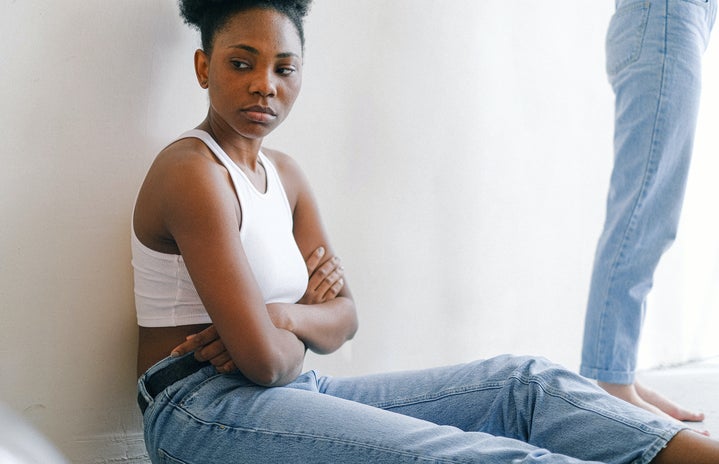Going by the literal definition, canceling means negating or neutralizing the effect of something, and in this case, someone. Anyone who uses any kind of social media platform is very likely to have come across people or brands being ‘canceled’ online. This has become part of the internet lingo and has established itself as the Cancel Culture. With social media helping accelerate this phenomenon, a great power and immense responsibility has been entrusted to all the viewers and consumers to not derail the movement.
Essentially, the culture involves canceling people/brands/shows who may have stated any inappropriate remarks or portrayed social or political ideologies that can hurt the sentiments of some cultures or communities. This process usually involves amplifying the situation in question on social media so as to engage a larger chunk of people and then proceed to boycott the person- to the extent that even the brands associated with him/her/they may have no other option but to succumb to the pressure and end their association with the offending individual. There is a brutal hit to the person’s reputation, and in some extreme cases, it may directly affect their finances.This movement has also helped combat social injustice in many cases and has held many offending individuals accountable for their actions. Actor and comedian Kevin Hart was trolled for his homophobic tweets and jokes, and as a consequence, he was forced to step down as the host of the 2019 Academy Awards. In another case, even someone as celebrated and legendary as JK Rowling was canceled for her insensitive remarks on transgender people. Closer home, actor Sushant Singh Rajput’s death triggered much dissent on the prevalent nepotism in the entertainment industry and Karan Johar, Alia Bhatt, Sara Ali Khan along with many others were receiving end of all these claims. This case has, in fact, made the audience much more perceptive and receptive of talent over just looks and fame.
As I stated before, there lies great power in the hands of the viewers and the consumers, and this movement substantiates that none of us are merely blind customers. Each of us has our sense of morality and the freedom to speak up if some post or comment by someone triggers us. Celebrities or individuals with many followers need to assume accountability for whatever content they put out on social media. Since being influencers tends to impact many people’s minds, their content should be credible and sensitive towards the myriad of viewers.
Be that as it may, my brain is in tremendous hullabaloo when one of my friends makes a homophobic or a racist joke or comment. This is one of the major problems I faced when I was in high school, when the thought of fitting in was of utmost paramount. My mind fell into shambles when anyone from my friend circle made any racist, sexist, homophobic, or religion-disparaging joke; it would be rude to correct them, or so I thought. There was fear that I would be considered too obnoxious or uncool, and basically, all the effort I put in to fit in will go down the drain. I admit, it took some time for me to realize that working into these conventions was the uncool thing to do and confronting my friends did make the mercury sink and leave me shuddering. It may have been the hardest thing for me to do as a teenager but I have no regrets; in fact, I like my ‘uncool’self much better. It is detrimental that we all stand up against narrow-mindedness, insensitivity, and the attempt at veiling these as ‘just a joke’. If you don’t correct your friends when they pass off any homophobic, racist, classist, or bigoted comments as a joke, you are being ignorant and making yourself a part of this stagnant mindset.
Does this mean we should ‘cancel’ our actual friends? Is tossing them to the side by calling them ‘toxic’ and just exiting the scene the right thing to do? I feel friendships are definitely on a higher pedestal than a relationship between a viewer and an influencer; it is much more complex and involves the feelings and emotions of people. But that doesn’t mean we can consider this situation a small fight and reconcile as friends later. The problem is much deeper and it questions the moral values and beliefs of a person and hence has to be treaded on lightly and treated with utmost patience. First, we should give them the space and the time to grow a broader perspective by explaining the situation to them patiently since they earlier may have felt insulted or resentful by our confrontation. Secondly, we have to trust the bond we share and our values and ethics to make them understand that what they said or did was wrong. The whole process is delicate and sensitive and is undoubtedly different from the prevalent cancel culture on social media.
Having covered that, I think it is absolutely imperative to realize our responsibility as supporters of the social movement that we don’t let it stray away from its aim and be used as a weapon to target people based on some rumors or facts that are not even backed up with any research. People tend to follow the herd mentality on social media platforms, so we must base our opinions on valid, trustworthy sources and do good research.
We must understand that this movement can help bring about social justice, but it can target innocent victims and affect them socially and mentally if misused.

